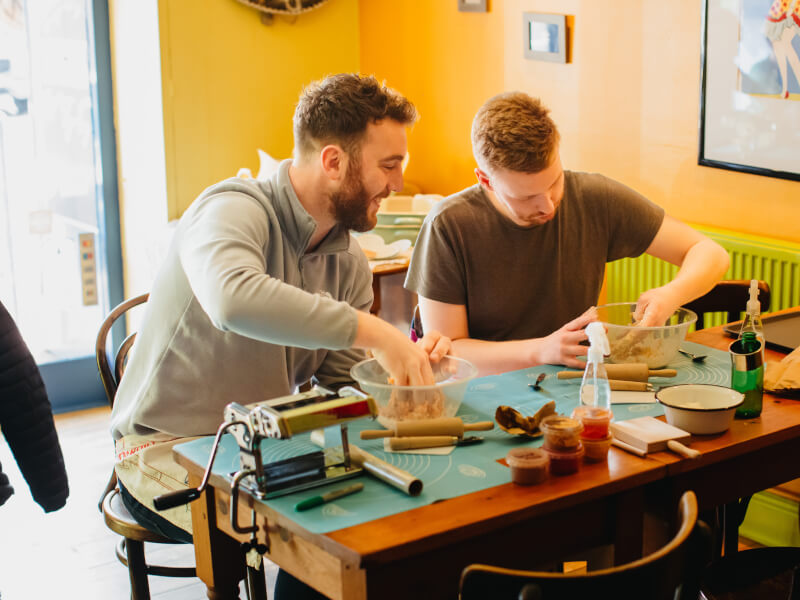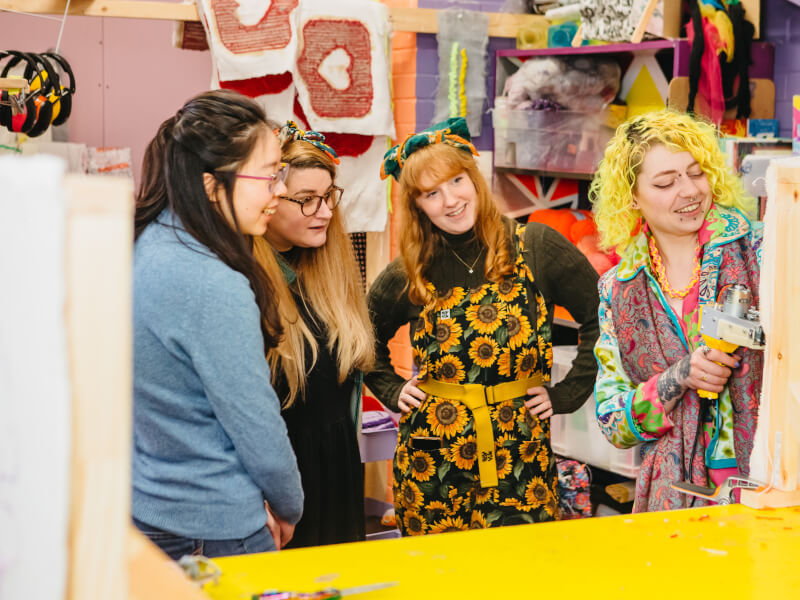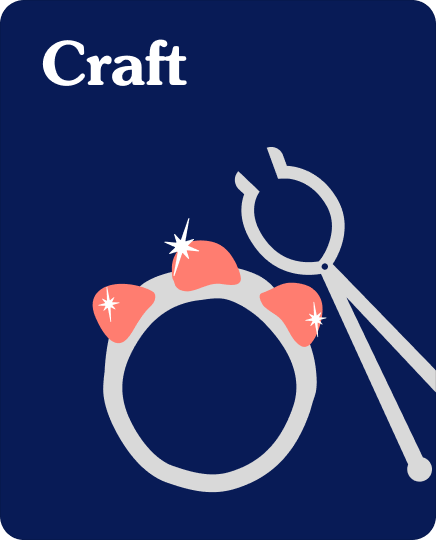Avoid workplace burnout with our fun team building activities in Australia! As one of the most common issues in today's fast-paced work environment, it’s important to find hobbies that offer you a chance to step back from your daily tasks, recharge your batteries and engage with your colleagues on a more personal level.
These team bonding activities create an environment where everyone can let their guard down and be themselves! You get to laugh together, learn together and even fail together without fear of judgment. This brings about positive vibes that can greatly relieve work-related stress and prevent burnout in your workplace.
So let’s get serious about avoiding burnout and consider finding some creative hobbies to do with your loved ones. These team building ideas have proven time after time that they are more than just games; they're essential tools for maintaining a healthy work-life balance and cultivating an enjoyable workplace environment.
Interested in learning more? Read on to discover what are the effects of burnout and how you can avoid it with one of our team building activities in Australia!
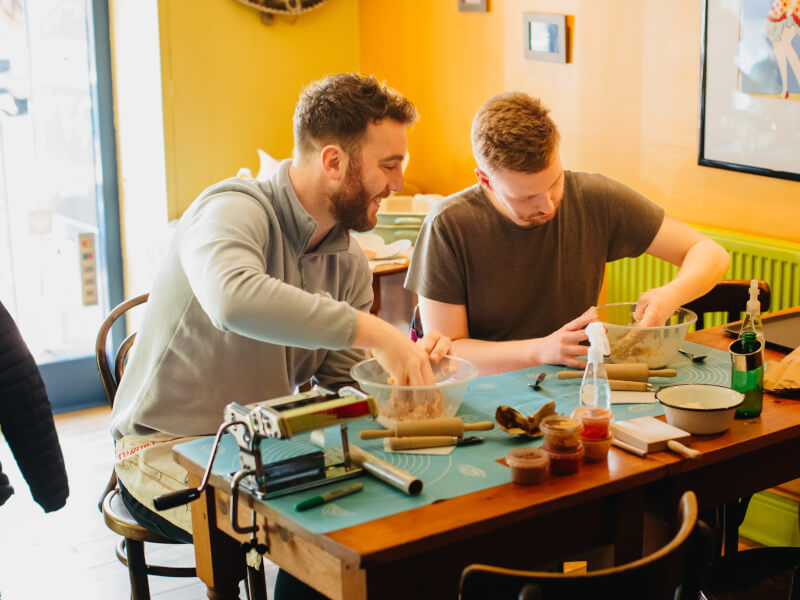
Dealing with workplace burnout
Ironically, this work-minded mentality may actually be limiting our productivity. Sources like Forbes and Harvard Business Review (1) agree that increases in work-related stress can result in a significant sense of burnout, characterised by disengagement and a dip in job performance.
Just how serious is the problem? Dealing with burnout in a high-intensity job is kind of like sprinting through the first three kilometres of a marathon. You’ll feel overwhelmed and frustrated and probably think of dropping out of the race. And if you don’t find a way to fix the problem quickly, you might even damage your body and your mental state in the process.
Workplace burnout can also be characterised by a lack of motivation and conflict towards coworkers and family and physical ailments. Negative effects on productivity aside, employers who care about the wellbeing of their workforce should take burnout very seriously, making sure to implement preventative measures and be able to identify the signs early.
Try out an arts and craft workshop
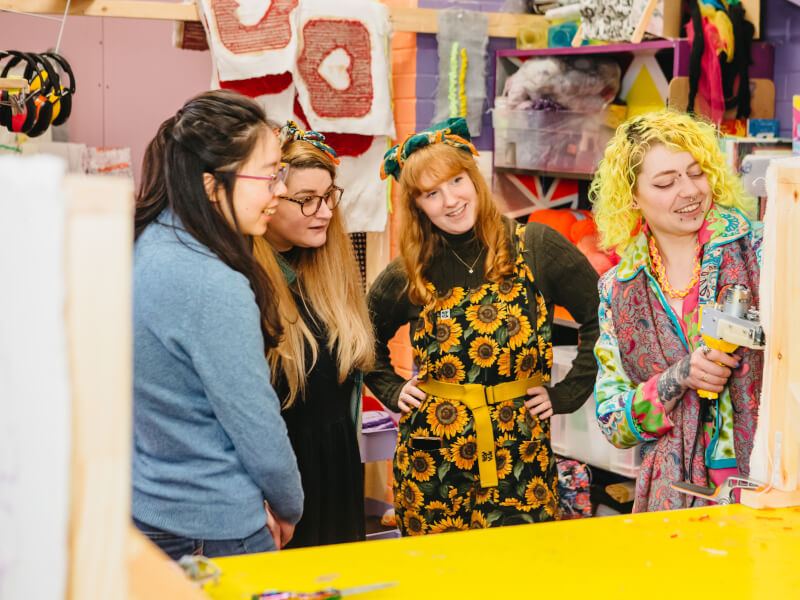
Let’s avoid the dangers of burnout and instead take up a new creative hobby this year. Arts and crafts activities are shown to combat the feelings of anxiety and exhaustion that characterise burnout and should thus be considered a necessary part of any team building activity.
Of course, no two hobbies affect a person the same way. Tufting, for instance, offers a completely different array of benefits than taking a pottery class. So, to help you in your search for the perfect hobby, let’s get down to some specifics. Each of the categories listed below contains its own set of unique advantages, so you may even want to dabble in a bit of everything!
1. Build something beautiful (or not so beautiful, as long as you’re having fun!)

Creative activities like crocheting, painting, woodworking or pottery are all great hobbies for anyone interested in reducing stress while also creating something practical or artistic.
The New York Times (2) has laid out a long list of the health benefits of knitting, from reduced chronic pain to the “development of neural pathways in the brain that help to maintain cognitive health.” Knitting is great not only for your physical but also your mental wellbeing, as the craft allows you to focus on the task at hand and to help you use your hands for a creative cause.
Alternatively, hobbies like painting and drawing are shown (3) to increase emotional intelligence, hone communication skills and again reduce stress. Indeed, an article from the Huffington Post (4) suggests that creating art instead of consuming it is great for emotional health.
2. Hold a game night
From board games to card games to charades, engaging in social fun is the perfect antidote for work-related stress. Playing games with family members, friends, or coworkers is a great way to take a break from digital screens and instead, have some competitive fun among loved ones. These benefits will help you to avoid burnout and inject some energy into the workplace (and in your life too!).
Board games have an additional bonus. They strengthen social relationships, which is important because research (5) indicates that strong, positive social connections are critical for physical and mental wellbeing.
3. Get physical!
Whether you want the competitiveness of tennis or the wackiness of inner tube water polo, there are sports teams available for you to explore. In addition to being simply fun, athletic games have both physical and mental advantages that will help beat the workplace blues.
Physical exercise is widely considered (6) crucial for overall health, leading to reduced blood pressure, improved stamina, stronger bones and mitigated risk of heart disease, just to name a few. Yet, according to the Australian Bureau of Statistics (7) in 2011, only 43% of adults met the sufficient threshold for daily physical exertion.
Research (8) shows that athletic pursuits aren’t just good for your body. Exertion releases certain chemicals in the brain related to overall good mood, elation and brain cell growth. It is also responsible for lower stress levels and decreased likelihood of depression or anxiety. There are even physical hobbies that exclusively teach mindfulness and meditation, such as yoga and tai chi.
These sports listed above offer the potential to create a fulfilling, stress-free life that can not only make you happy outside of work but can also greatly reduce the risk of professional burnout. The key is to find a hobby that truly makes you happy and stick with it. After all, prioritising your wellbeing is perhaps the best way to ensure that work-related stress doesn’t creep up so that you can be at the top of your professional game.
One article couldn’t possibly cover the expansive world of arts and crafts workshops and recreational classes in Australia but hopefully, you have a few good ideas to get started. Let us know if you’d like to share your own remedies for workplace burnout!
References:
1) hbr.org/2016/01/help-your-team-manage-stress-anxiety-and-burnout
2) well.blogs.nytimes.com/2016/01/25/the-health-benefits-of-knitting
3) goodrelaxation.com/2015/01/health-benefits-of-painting-and-drawing
4) huffingtonpost.com/james-clear/make-more-art-the-health-benefits-of-creativity_b_8868802
5) ncbi.nlm.nih.gov/pmc/articles/PMC3150158
6) betterhealth.vic.gov.au/health/healthyliving/sports-and-physical-activity
7) abs.gov.au/ausstats/abs@.nsf/Lookup/4364.0.55.004Chapter1002011-12


